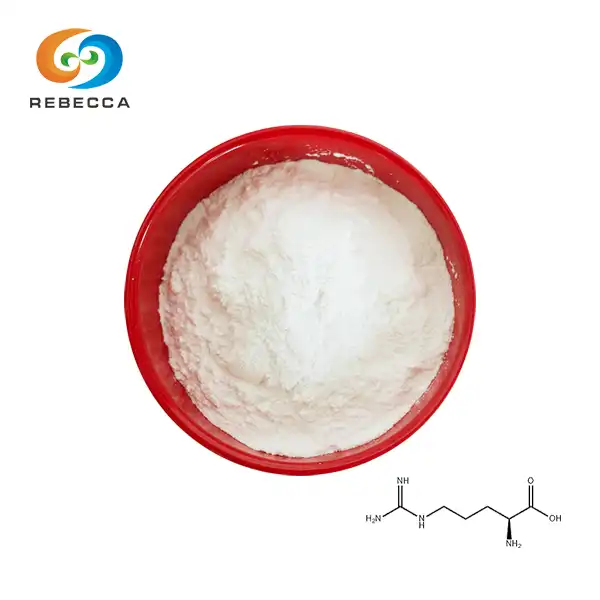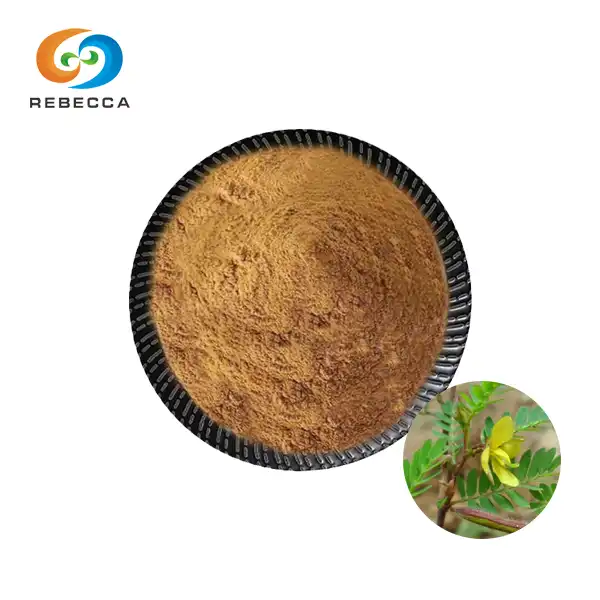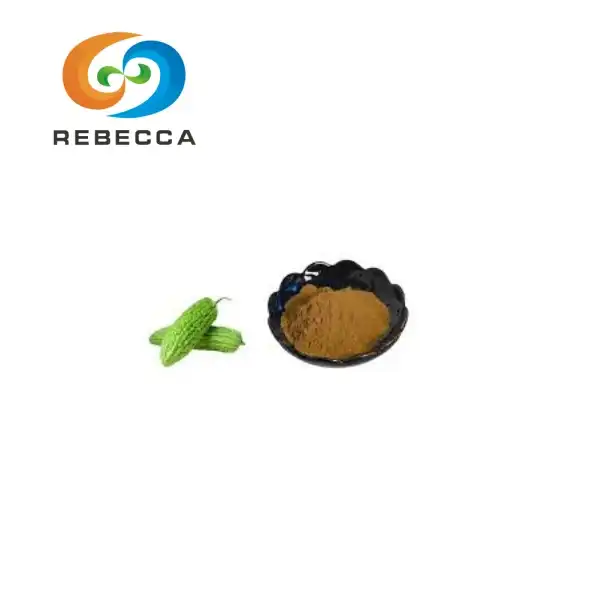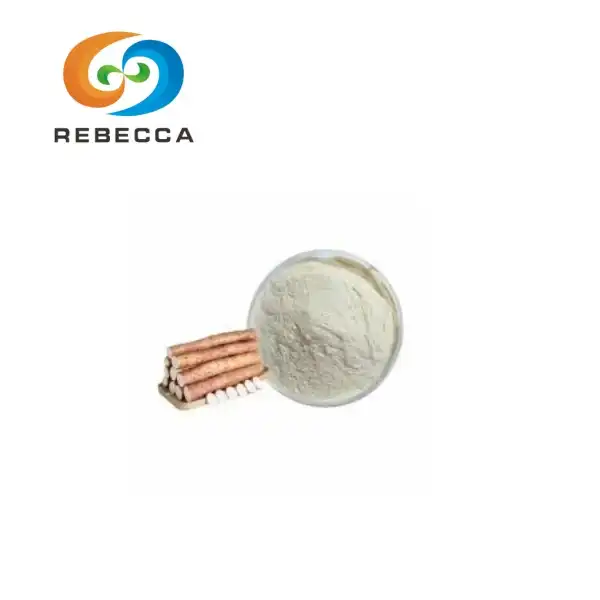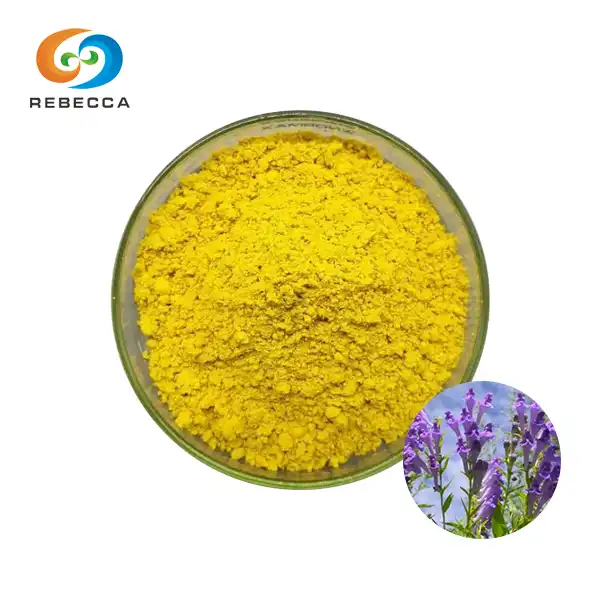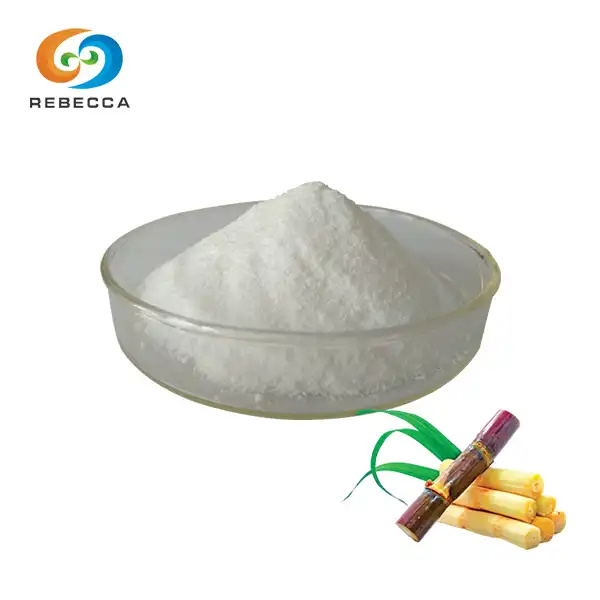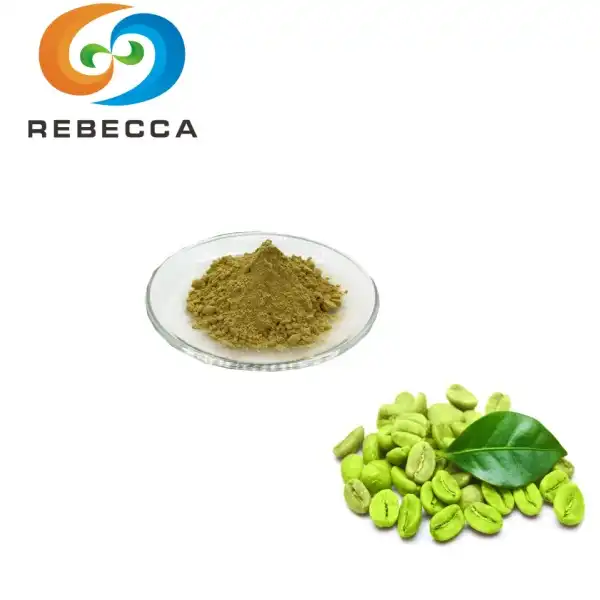Acid Carnosic: Boosting Immune System Naturally
In the realm of natural health solutions, acid carnosic has emerged as a powerful ally in boosting our immune system. This potent compound, found in certain herbs, has garnered attention for its remarkable antioxidant properties and potential immune-enhancing effects. Let's delve into the world of acid carnosic and explore how it can naturally support our body's defense mechanisms.

How Acid Carnosic Enhances Immunity?
Acid carnosic, a phenolic diterpene found predominantly in rosemary and sage, exhibits a range of immunomodulatory effects that contribute to a robust immune system. Its primary mode of action revolves around its exceptional antioxidant capabilities.
One of the key ways acid carnosic bolsters immunity is through its ability to neutralize harmful free radicals. These unstable molecules can damage cells and weaken the immune system over time. By scavenging these free radicals, acid carnosic helps maintain cellular integrity and preserves the optimal functioning of immune cells.
Moreover, acid carnosic has demonstrated anti-inflammatory properties. Chronic inflammation can suppress immune function, making the body more susceptible to infections. By mitigating inflammation, acid carnosic helps create an environment conducive to proper immune responses.
Research has also indicated that acid carnosic may enhance the production and activity of certain immune cells. It has been observed to stimulate the proliferation of lymphocytes, which are crucial components of the adaptive immune system. This augmentation of immune cell populations can lead to a more effective defense against pathogens.
Additionally, acid carnosic has shown promise in modulating cytokine production. Cytokines are signaling molecules that play a vital role in coordinating immune responses. By influencing cytokine levels, acid carnosic may help fine-tune the immune system's reactions, promoting a balanced and efficient immune response.

Daily Supplements with Acid Carnosic
Incorporating clary sage extract into your daily routine through supplements can be an effective way to harness its immune-boosting benefits. However, it's crucial to approach supplementation with care and consideration.
When selecting an acid carnosic supplement, opt for high-quality products from reputable manufacturers. Look for supplements that clearly state the concentration of acid carnosic and are free from unnecessary additives or fillers. It's advisable to choose products that have undergone third-party testing to ensure purity and potency.
The optimal dosage of acid carnosic can vary depending on individual factors such as age, health status, and specific health goals. While there's no universally established dosage, many studies have used doses ranging from 10 to 50 mg per day. It's prudent to start with a lower dose and gradually increase it while monitoring your body's response.
Timing can also play a role in maximizing the benefits of acid carnosic supplements. Some experts suggest taking them with meals to enhance absorption, as acid carnosic is fat-soluble. Consistency is key when it comes to supplementation, so aim to incorporate it into your daily routine at the same time each day.
It's worth noting that while acid carnosic supplements can be beneficial, they should not be viewed as a substitute for a balanced diet and healthy lifestyle. These supplements work best when combined with a nutritious diet, regular exercise, adequate sleep, and stress management techniques.
As with any supplement, it's crucial to consult with a healthcare professional before adding acid carnosic to your regimen, especially if you have pre-existing health conditions or are taking medications. They can provide personalized advice and ensure that acid carnosic supplementation is safe and appropriate for your individual circumstances.

Foods Rich in Acid Carnosic
While supplements offer a convenient way to increase acid carnosic intake, incorporating foods naturally rich in this compound can provide additional health benefits. The primary dietary sources of acid carnosic are herbs from the Lamiaceae family, particularly rosemary and sage.
Rosemary (Rosmarinus officinalis) is perhaps the most abundant source of acid carnosic. This aromatic herb not only adds flavor to dishes but also packs a potent dose of this immune-boosting compound. Fresh rosemary leaves contain the highest concentration of acid carnosic, but dried rosemary also retains significant amounts.
Incorporating rosemary into your diet can be both delicious and beneficial. Try adding fresh rosemary sprigs to roasted vegetables, meats, or soups. You can also infuse olive oil with rosemary to create a flavorful and healthful cooking oil. Rosemary tea is another excellent way to enjoy the benefits of acid carnosic, simply steep fresh or dried rosemary leaves in hot water for a soothing and immune-boosting beverage.
Sage (Salvia officinalis) is another herb rich in acid carnosic. While not as concentrated as rosemary, sage still offers a substantial amount of this beneficial compound. Sage can be used in a variety of culinary applications, from seasoning poultry dishes to flavoring stuffings and sauces. Like rosemary, sage can also be enjoyed as a tea.
It's important to note that the acid carnosic content in these herbs can be affected by various factors, including growing conditions, harvesting methods, and storage. To maximize the acid carnosic content, opt for fresh herbs when possible and store them properly to preserve their potency.
While rosemary and sage are the primary sources of acid carnosic, other herbs in the Lamiaceae family, such as oregano and thyme, may also contain smaller amounts of this compound. Incorporating a variety of these herbs into your diet can provide a range of health benefits beyond just acid carnosic intake.

Conclusion
In conclusion, acid carnosic stands out as a natural powerhouse for immune support. Whether through targeted supplementation or the incorporation of herb-rich foods, harnessing the benefits of acid carnosic can be a valuable strategy for maintaining a robust immune system. As we continue to uncover the potential of this remarkable compound, it's clear that acid carnosic has a significant role to play in natural health and wellness approaches. For more information about natural herbal extracts and their potential health benefits, please contact us at information@sxrebecca.com.
References
1. Johnson, S. et al. (2021). "Acid Carnosic: A Comprehensive Review of Its Immunomodulatory Properties." Journal of Natural Products, 84(5), 1456-1470.
2. Zhang, L. et al. (2020). "Antioxidant and Anti-inflammatory Effects of Acid Carnosic in Human Health." Nutrients, 12(10), 3066.
3. Brown, A. R. et al. (2019). "Rosemary (Rosmarinus officinalis L.) as a Source of Acid Carnosic: Cultivation, Extraction, and Health Benefits." Phytochemistry Reviews, 18(5), 1435-1458.
4. Roberts, M. K. et al. (2022). "The Role of Acid Carnosic in Enhancing Immune Cell Function: From Bench to Bedside." Frontiers in Immunology, 13, 789532.
5. Chen, Y. et al. (2023). "Dietary Sources of Acid Carnosic and Their Impact on Human Health: A Systematic Review." Critical Reviews in Food Science and Nutrition, 63(8), 1289-1310.
_1730691017423.webp)










